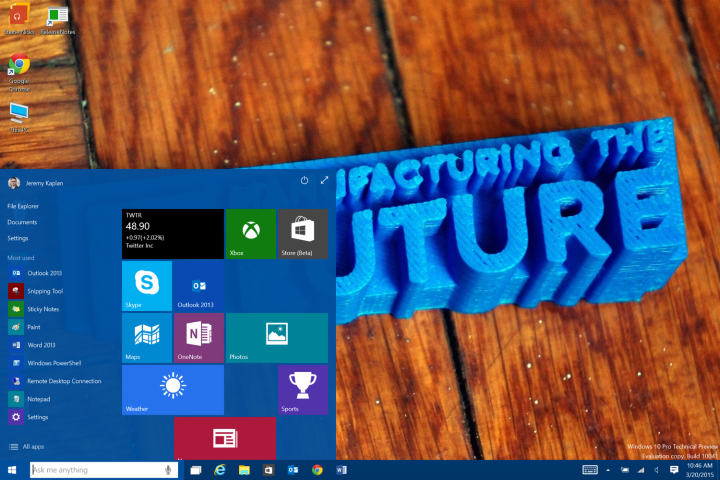
At present, users can expect to see five promoted apps interspersed with their own content whenever they open the Start Menu. Once the Anniversary Update has been applied, this number will grow to ten promoted apps, and there’s sure to be scores of users who are upset with this kind of embedded advertising.
Microsoft has stated that any promoted apps that are preinstalled can be completely removed from the system, according to a report from The Verge. The company has also confirmed that promoted items can be removed from the start menu, but it seems that this only refers to individual apps, rather than an option to block all advertising.
Many were surprised when Microsoft announced its intentions to release Windows 10 for free, but now we’re seeing the fruits of its efforts. This form of content promotion could be a very attractive proposition to advertisers, given that there’s a captive audience of 300 million to put products in front of.
Windows has long been the top OS for choice users, but now it’s in competition with mobile operating systems like Android and iOS. In this new landscape, a prosperous app store is vital — and giving users another way to discover new apps is something that developers will welcome with open arms.
However, it remains to be seen whether or not an injection of more ads will harm the user experience. The Anniversary Update also marks the cutoff for free upgrades from previous versions of Windows, but changes like this one are sure to make traditionalists think twice about making the jump.
Editors' Recommendations
- If you use a VPN, don’t skip this important Windows 11 update
- The latest Windows update is breaking VPN connections
- Windows 11 tips and tricks: 8 hidden settings you need to try
- Microsoft announces a new threat to push people to Windows 11
- How to adjust screen resolution in Windows 11 and older


